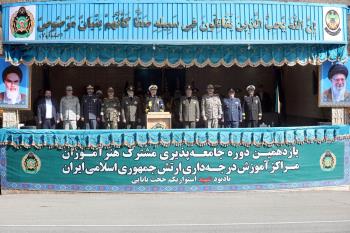Alwaght- Lebanon’s former education minister Hassan Diab was appointed as the country’s new prime minister after getting the confidence vote of nearly 70 lawmakers during consultations on the matter.
According to a statement released by the Lebanon’s media quoting the Lebanese Presidency, the designation of Hassan Diab for prime minister has been endorsed by 69 members of the parliament.
The statement added that 13 lawmakers voted for Nawwaf Salam while 42 others did not endorse anyone for premiership.
President Michel Aoun, who has been at loggerheads with outgoing Prime Minister Saad al-Hariri, began consultations on Thursday with deputies to designate the new premier, who must be a Sunni Muslim in Lebanon's political system.
Diab, who has a doctorate in computer engineering, served as the education minister in a government led by former premier Najib Mikati.
Elie Ferzli, the deputy parliament speaker and a political ally of Hezbollah, was the first lawmaker to declare support for Diab. Ferzli said Diab's nomination took "into account some of the basic prerequisites wanted by the people", calling him an "academic and person of integrity".
Hezbollah lawmaker Mohammad Raad said the group had extended the hand of cooperation "for the sake of the country".
Diab emerged as a candidate for the position at the last minute when Hariri withdrew his candidacy on Wednesday.
The decision followed a move by the Christian Lebanese Forces to nominate neither Hariri nor anyone else for the position. The Lebanese Forces was once a close ally of Hariri.
Hariri's Future Movement also named no one for the post and told Aoun it would not take part in the next government.
Lebanon has been in dire need of a new government since Hariri, who is aligned with Western and Persian Gulf Arab states, resigned on October 29,.
Under the constitution, Hariri’s cabinet would stay on in a caretaker capacity until a new government is formed.
Parliament Speaker Nabih Berri has recently warned against bids to escalate sectarian tensions in Lebanon, stating that the crisis-hit Arab country could slide into sedition as a result of increased divisive rhetoric over the past few days.
The protests began on October 17, when the government proposed imposing a tax on Whatsapp calls, along with other austerity measures.
Protesters in Lebanon have stopped blocking roads and setting up barricades, and instead shifted to holding sit-ins at state-affiliated sites.
They say they will maintain pressure on the political establishment until their demands for the departure of the ruling elite and an end to chronic economic mismanagement and corruption are met.
Lebanon's caretaker Interior Minister Raya al-Hassan on Sunday ordered the country's law enforcement agencies to open a "rapid and transparent" inquiry, after dozens of people were wounded in clashes during recent demonstrations that had erupted in a barricaded central district of Beirut.
Lebanon has been facing a very tough economic situation because of the failing policies of successive governments, which have led to the impoverishment of the people.
Growth in Lebanon has plummeted in the wake of endless political deadlocks and an economic crisis in recent years.
The country hosts 1.5 million Syrian refugees, and their presence is often blamed for putting pressure on the already struggling economy.
Unemployment stands at more than 20 percent, according to official figures.
The Lebanese Finance Ministry says the national debt is hovering around $85 billion, which accounts for more than 150 percent of Gross Domestic Product (GDP).
Successive governments have also failed to address a waste management crisis or improve the electricity grid, which is plagued by daily power cuts.



























